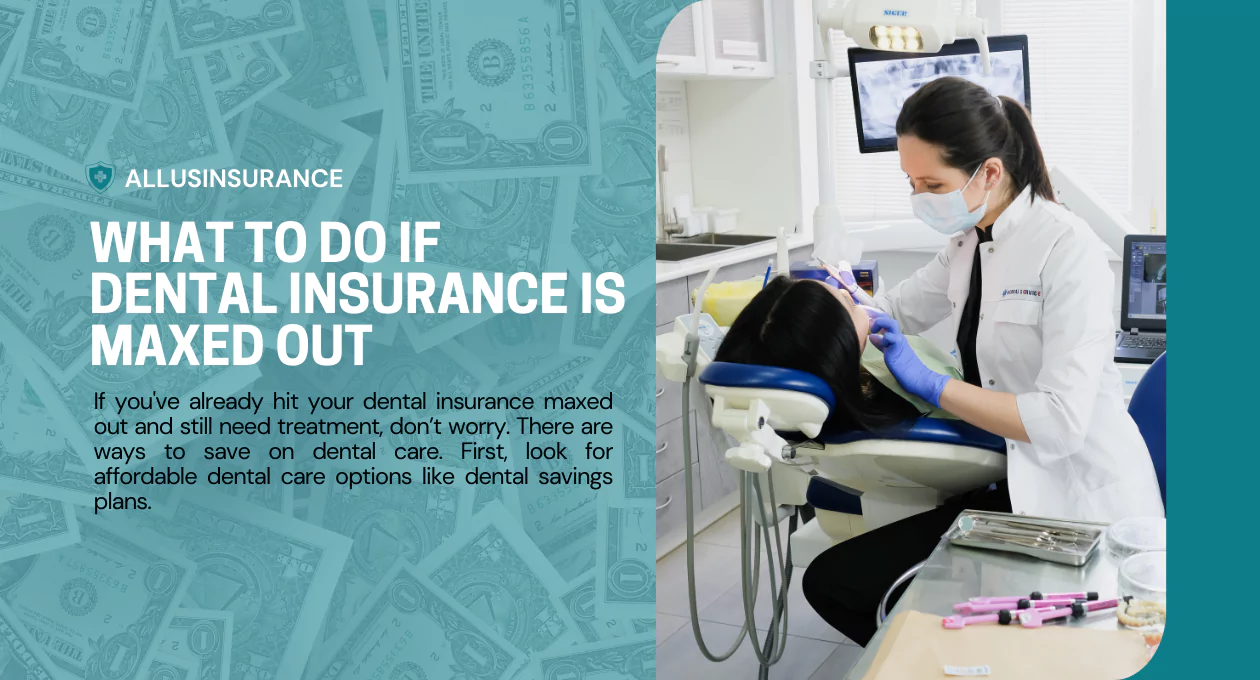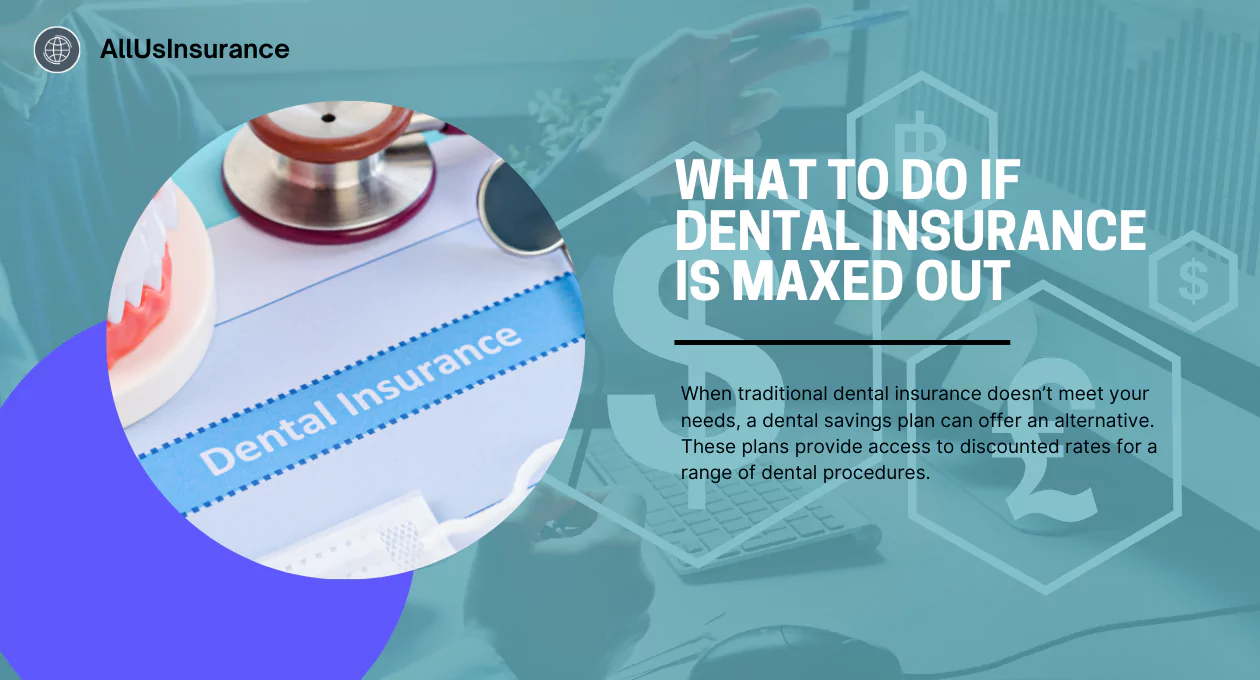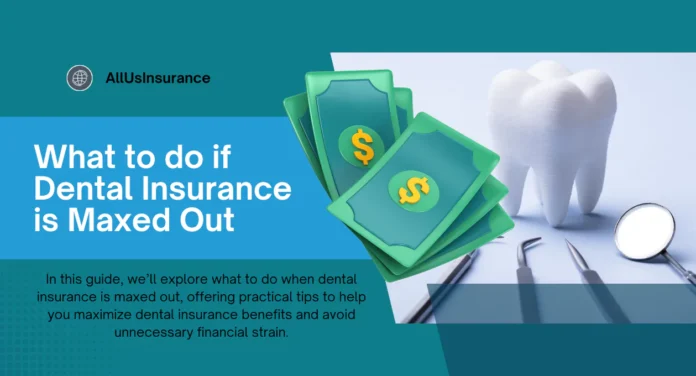In this guide, we’ll explore what to do when dental insurance is maxed out, offering practical tips to help you maximize dental insurance benefits and avoid unnecessary financial strain. If your dental insurance is maxed out, you may be wondering how to manage the remaining dental treatment costs without breaking the bank. Maxed out dental insurance doesn’t mean you’re out of options.
There are several smart strategies to continue receiving quality care while minimizing out-of-pocket dental costs. Whether it’s using a dental savings plan, breaking up large procedures into phases, or exploring supplemental dental insurance, you can still take control of your dental health.
What Is an Annual Maximum for Dental Insurance?
Every dental insurance plan comes with an annual maximum dental insurance limit. This is the most your insurer will pay for covered dental procedures within one year. The typical dental insurance cap ranges from $1,000 to $2,000 annually, depending on your policy. Once you reach this amount, you’re responsible for paying the remaining balance for any treatments until the next policy year begins.
It’s important to understand your plan’s dental insurance coverage limits. If your annual maximum is close, make sure to track how much you’ve spent. Once you hit that cap, you’ll have to pay out-of-pocket, which could be a significant financial burden if you require expensive dental procedures like dental implants or root canal treatments.
Is There a Maximum I’ll Pay Out of Pocket with Dental Insurance?
Yes, most dental plans also have a maximum out-of-pocket limit, which helps protect you from excessive costs. If your out-of-pocket dental costs reach a certain threshold, your insurer will cover 100% of any additional covered expenses for the remainder of the year. This provides some relief, especially if you’ve had high dental procedure pricing throughout the year. However, not all procedures may be covered, and you could still face expenses if you’re seeking out-of-network dental care.
For example, if your plan includes dental PPO network coverage, you may be able to get partial reimbursement for out-of-network dental care, but it will often be less than if you stay within the network. Understanding your plan’s dental insurance exceptions is key to avoiding unexpected bills.
Check Out: Our Blog does insurance cover accutane
Scenarios for Reaching Annual Maximums
There are many reasons why your dental insurance may reach its annual maximum. Common scenarios include multiple dental treatments like fillings, crowns, and even root canal treatments. A major dental issue that requires expensive procedures can quickly add up, especially if your treatment plan includes multiple visits or complex work.
Another reason might be orthodontic coverage for children or adults. Braces and other orthodontic treatments can eat into your benefits faster than you expect. It’s essential to plan for larger treatments and understand the dental work costs involved to avoid sudden financial strain.
Know Your Annual Maximum: Make Every Dollar Count
When your insurance is approaching its annual maximum, being strategic can help you avoid unnecessary out-of-pocket expenses. Review your policy regularly to track your dental insurance benefits and see how much you’ve already used. If you need dental implants or other expensive treatments, try to schedule them in the next year’s plan if possible.
You can also ask your dentist for a pre-treatment estimate, which will provide a cost breakdown of your procedures. Knowing these numbers will help you manage your budget and avoid overspending. If you’re reaching the cap, consider paying for minor treatments out-of-pocket rather than using your remaining benefits on smaller procedures.
How to Save Money Once You’ve Maxed Out Your Dental Insurance
If you’ve already hit your dental insurance maxed out and still need treatment, don’t worry. There are ways to save on dental care. First, look for affordable dental care options like dental savings plans. These plans allow you to get discounted rates on treatments without the need for traditional insurance. They’re a great option if you’ve exceeded your coverage.

Another option is to negotiate payment plans with your dentist. Many offices offer flexible payment options, allowing you to spread out the cost of treatment over several months. This way, you don’t have to pay everything upfront. Additionally, consider looking into supplemental dental insurance to fill the gaps in coverage.
Plan Larger Treatments in Phases
When facing expensive dental procedures, it’s smart to break them up into smaller treatments over several years. For instance, if you need crown treatment or dental implants, ask your dentist if you can phase out the treatments. This allows you to avoid exceeding your dental insurance cap and can spread out the financial impact.
The same strategy works for orthodontic coverage. Instead of getting all treatments done at once, you can gradually go through different phases of care. This approach also gives you time to plan for larger costs in the future, making the process less financially overwhelming.
Focus on Preventive Care First
Preventive care should be your first priority. Regular checkups, cleanings, and exams are usually covered 100% by most dental plans, without affecting your annual maximum. Preventive care ensures that minor issues are caught early before they develop into major problems. By taking care of these small issues, you can avoid dental work costs and the need for expensive dental procedures.
Good oral hygiene at home, such as brushing and flossing regularly, also helps reduce the risk of needing costly treatments. If you’re mindful of your dental health, you may find that you don’t need as many treatments each year, which means your insurance coverage will last longer.
Address Small Issues Before They Grow
Ignoring small dental problems can lead to much bigger, more expensive ones. Simple issues like cavities or gum disease can develop into severe problems requiring costly treatments such as root canals or even tooth extractions. When you’re already near your dental insurance cap, it’s important to address small issues quickly to avoid more expensive treatments down the line.
If you’re unsure about whether something needs attention, visit your dentist for a dental insurance plan review. They can help identify any potential issues that may not be immediately obvious, allowing you to stay ahead of any costs that would exceed your dental insurance benefits.
Check Out: Our Blog why is arestin not covered by insurance
Supplemental Dental Insurance Coverage
Supplemental dental insurance is a great way to add extra coverage once your dental insurance cap has been reached. These plans can help pay for treatments that aren’t fully covered by your primary insurance. They often cover the remaining balance for expensive procedures, like dental implants cost or orthodontic coverage.
Before purchasing supplemental coverage, compare the supplemental dental plans available to ensure that they align with your needs. It’s essential to review the dental insurance for children if you’re considering extra coverage for your family. Look for family dental coverage options that ensure everyone in your household is covered.
Advantages of Dental Savings Plans
When traditional dental insurance doesn’t meet your needs, a dental savings plan can offer an alternative. These plans provide access to discounted rates for a range of dental procedures. While they don’t have an annual maximum like insurance, they help manage dental procedure pricing and can be very beneficial if you’re paying out-of-pocket for treatments.

Dental savings plans work by offering discounts on services when you visit participating providers. It’s an affordable option, especially when dealing with dental expenses exceeding insurance coverage. These plans are flexible and often don’t have the waiting periods that are common with traditional insurance.
Schedule Now to Avoid the Holiday Rush
Dental offices often become crowded toward the end of the year, especially as people try to use up their dental insurance benefits before the new year. If you’re nearing your dental benefits exhaustion, try to schedule your treatments earlier in the year to avoid the holiday rush. By doing so, you can ensure better availability and avoid delays in getting the treatments you need.
Scheduling early also ensures that you don’t waste any remaining coverage and can get treatments done before your benefits reset. Don’t wait until December to make appointments—plan ahead so that you can make the most of your plan’s coverage before it’s too late.
FAQS about What to Do If Dental Insurance is Maxed Out
What should I do if I’ve reached the limit on my dental insurance?
If your dental insurance is maxed out, consider using a dental savings plan, paying out-of-pocket for small treatments, or exploring supplemental dental insurance to cover additional costs.
What happens when my dental insurance runs out?
When your dental insurance runs out, you’ll need to cover the remaining costs for any treatments until your benefits reset, or you may seek more affordable care options like payment plans or discount programs.
What happens when you hit your dental insurance maximum?
Once you hit your dental insurance maximum, your insurer stops paying for treatments, and you’re responsible for paying out-of-pocket for any additional care until the new policy year begins.
What happens if you max out your insurance?
If you max out your insurance, your dental plan won’t cover any more costs for the remainder of the year, so you’ll need to explore alternatives like out-of-network dental care or payment plans.
Can I extend my dental insurance coverage after maxing out?
Unfortunately, you can’t extend your coverage once your annual maximum is reached, but you can consider supplemental dental insurance or dental savings plans for additional coverage.
How can I avoid maxing out my dental insurance?
To avoid maxing out your dental insurance, plan treatments strategically, focus on preventive care, and keep track of your annual maximum usage throughout the year.
The Bottom Line: Don’t Let Your Benefits Go Unused!
If your dental insurance is maxed out, don’t let the benefits go unused. There are many options available to save money, from preventive care to dental savings plans and supplemental insurance. By planning strategically, addressing small issues early, and utilizing flexible payment options, you can manage out-of-pocket dental costs and get the care you need.
Ultimately, understanding your dental insurance plan and being proactive about your dental care will help you maximize your dental insurance benefits. Don’t wait until the end of the year to use your benefits—take action today and avoid unnecessary financial strain.
For more insurance blogs keep Visiting ALLUSINSURANCE.



